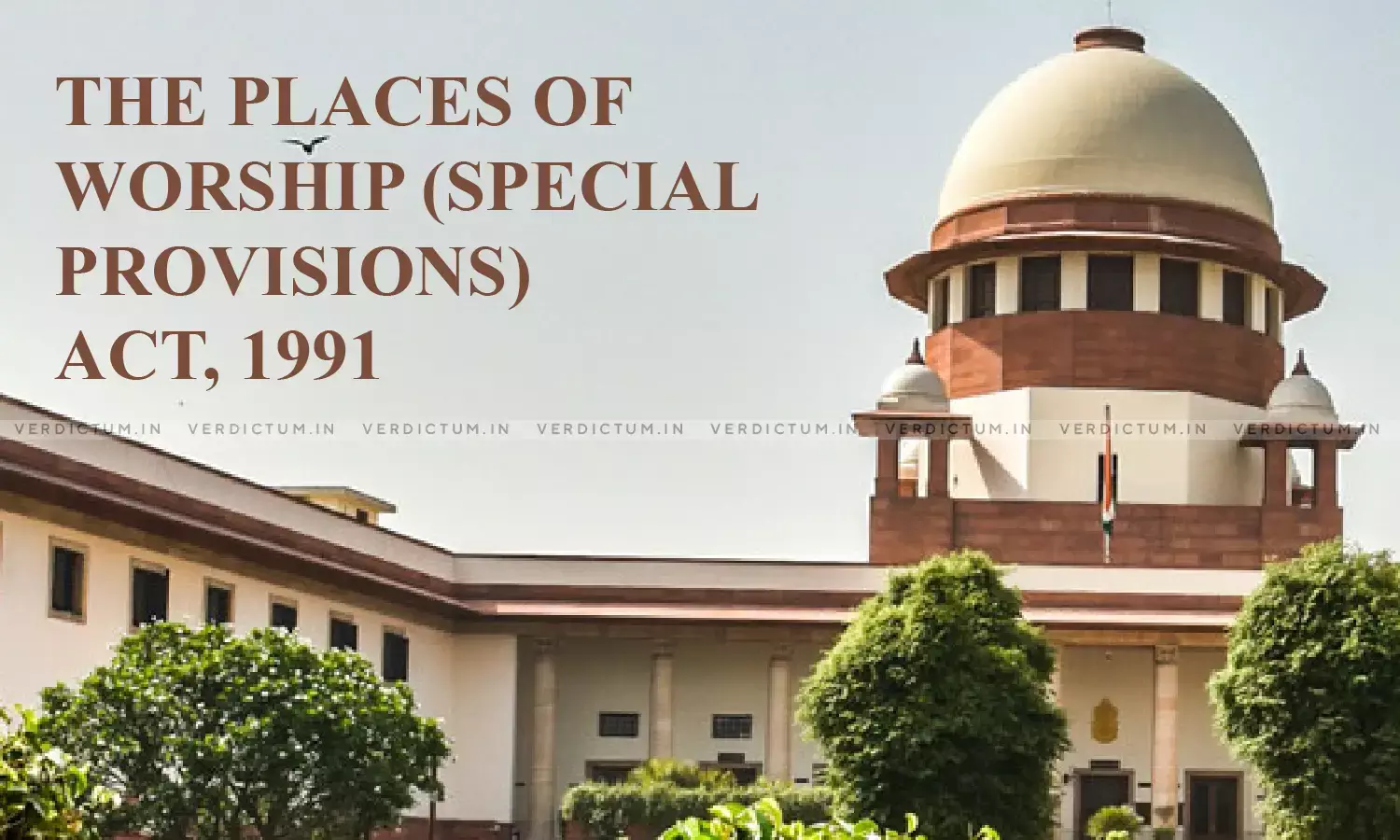Eighth Petition Challenging Validity Of Places Of Worship Act- A 1971 War Veteran Approaches Supreme Court
The Supreme Court of India has been moved yet again through a Public Interest Litigation challenging the Places of Worship Act. The petition has been filed by a retired Army Officer and 1971 War Veteran, Lt. Col. Anil Kabotra through Advocate Ashwini Kumar Dubey.
This is the eighth petition challenging the said statute, which will have a bearing on the ongoing disputes in the Gyanvyapi dispute, Krishna Janmabhoomi case and other similar ongoing litigations, including the Qutub Minar dispute. Earlier, three lawyers, including Ashwini Kumar Upadhyay, Dr. Subramanian Swamy and three spiritual leaders had approached the Court. While the Court has issued notice on the pleas by Adv. Upadhyay and Dr. Swamy, the other petitions are yet to be listed.
The present petition is filed under Article 32 to challenge the constitutional validity of Sections 2, 3, 4 of the Places of Worship (Special Provisions) Act 1991, which according to the petitioner not only offends Articles 14, 15, 21, 25, 26, 29 but also violates the principles of secularism, which is an integral part of Preamble and the basic structure of the Constitution.
The petition states that, "Centre has barred the remedies against illegal encroachment on the places of worship and pilgrimages and now Hindus Jains Buddhists Sikhs cannot file a suit or approach High Court under Article 226. Therefore, they won't be able to restore their places of worship and pilgrimage including temples-endowments in spirit of Articles 25-26 and illegal barbarian act of invaders will continue in perpetuity."
It is also stated in the petition that, "The injury caused to Hindus Jains Buddhists and Sikhs is extremely large because Sections 2, 3, 4 of the Act has taken away the right to approach Court and thus right to judicial remedy has been closed." The petition continued on to state that, "Maxim ubi jus ibi remedium has been frustrated by the impugned provisions in pending suit/proceeding, in which cause of action has arisen or continue and the remedy available to aggrieved person through court has been abolished thus violating the concept of justice and Rule of Law, which is core of Article 14."
The petition states that, "The impugned Act is void and unconstitutional for many reasons. It: (i) offends right of Hindus Jains Buddhists Sikhs to pray profess practice and prorogate religion (Article 25) (ii) infringes on rights of Hindus Jains Buddhists Sikhs to manage maintain administer the places of worship and pilgrimage (Article 26) (iii) deprives Hindus Jains Buddhists Sikhs from owning/acquiring religious properties belonging to deity (misappropriated by other communities) (iv) takes away right of judicial remedy of Hindus Jains Buddhists Sikhs to take back their places of worship and pilgrimage and the property which belong to deity (v) deprives Hindus Jains Buddhists Sikhs to take back their places of worship and pilgrimage connected with cultural heritage (Article 29) (vi) restricts Hindus Jains Buddhists Sikhs to restore the possession of places of worship and pilgrimage but allows Muslims to claim under S.107, Waqf Act (vii) legalize barbarian acts of invaders (viii) violates the doctrine of Hindu law that 'Temple property is never lost even if enjoyed by strangers for years and even the king cannot take away property as deity is embodiment of God and is juristic person, represents 'Infinite the timeless' and cannot be confined by the shackles of time'."
The petitioner has sought a declaration that Section 2, 3 and 4 of the Places of Worship (Special Provisions) Act, 1991 is void and unconstitutional for being violative of Articles 14, 15, 21, 25, 26, 29 of the Constitution of India in so far as it legalizes 'the ancient historical and puranic places of worship and pilgrimage', illegally occupied by barbaric foreign invaders.
Click here to read/download the Petition













